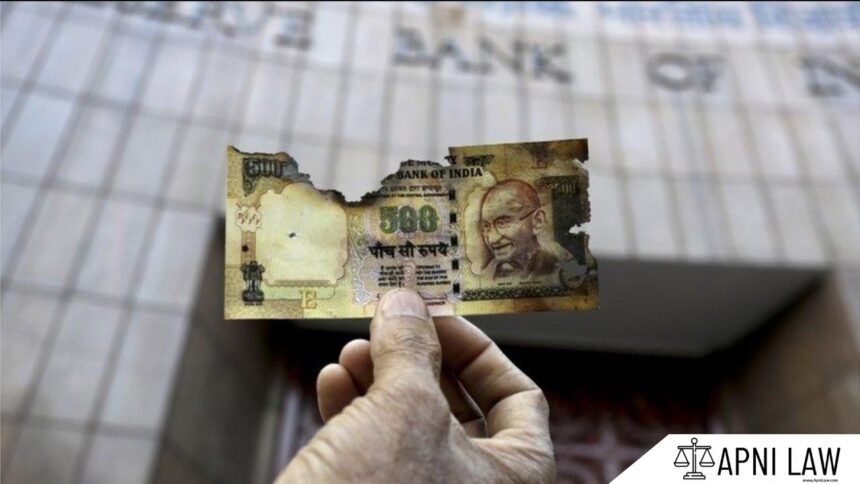Introduction
The Right to Information Act, 2005 empowers Indian citizens to access information from public authorities, enhancing transparency and accountability in governance. To implement and enforce the RTI Act effectively, the law mandates the establishment of Central and State Information Commissions. These Commissions act as independent bodies to adjudicate complaints and appeals under the Act. Sections 12 to 17 of the RTI Act outline the structure, appointment, powers, and removal procedures for the Chief Information Commissioners and Information Commissioners at both central and state levels.
Constitution of the Central Information Commission Under RTI
The Central Government, through a notification in the Official Gazette, must constitute the Central Information Commission (CIC). This autonomous body is entrusted with the powers and functions laid out in the RTI Act, 2005.
Composition of the CIC Under RTI
The CIC consists of one Chief Information Commissioner (CIC) and a maximum of ten Information Commissioners (ICs). The number of Commissioners is based on what the government deems necessary.
The President of India appoints the Chief Information Commissioner and the Information Commissioners. Their appointment is based on the recommendation of a committee comprising the Prime Minister (Chairperson), Leader of Opposition in the Lok Sabha, and a Union Cabinet Minister nominated by the Prime Minister. If the Leader of Opposition is not officially recognized, the leader of the largest opposition party is considered.
The Chief Information Commissioner has the authority over the general supervision, direction, and management of the CIC. The CIC functions independently and is not subject to directions from any external authority, as per the RTI Act.
Eligibility Criteria
Individuals eligible for the posts of CIC or IC must be of eminence in public life and possess expertise in fields such as law, science and technology, social service, management, journalism, mass media, administration, or governance.
A person cannot be appointed as CIC or IC if they are a Member of Parliament or any State/UT legislature, hold any office of profit, are connected with a political party, or are involved in business or professional activities.
Headquarters of CIC
The headquarters of the Central Information Commission is in Delhi. However, the CIC may establish regional offices with prior approval from the Central Government.
The Chief Information Commissioner holds office for a term as prescribed by the Central Government, but not beyond the age of 65 years, and cannot be reappointed.
Information Commissioners also hold office for a prescribed term or until they reach 65 years of age, whichever comes earlier.
They are not eligible for reappointment as ICs. However, an IC can be promoted as CIC, provided their total term in both roles does not exceed five years.
Before taking office, the CIC and ICs must take an oath or affirmation in the form specified in the First Schedule. This is done before the President or a designated officer.
The CIC and ICs may resign by submitting a written resignation to the President. However, their removal must follow the procedure outlined in Section 14 of the RTI Act.
Salary and Service Conditions
The salaries, allowances, and service conditions of the CIC and ICs are determined by the Central Government. These conditions cannot be altered to their disadvantage after appointment. CICs and ICs appointed before the 2019 Amendment remain governed by the pre-amendment rules.
Support Staff and Office Infrastructure
The Central Government must provide necessary staff and infrastructure for the efficient functioning of the CIC. The terms of service for these officers and employees are also to be prescribed by the government.
Removal of Chief Information
Commissioner or Information Commissioners
The President of India can remove the Chief Information Commissioner or any Information Commissioner from office only on proven misbehavior or incapacity. This must be based on an inquiry conducted by the Supreme Court, initiated on a reference made by the President. If the Court upholds the charges, the President may remove the concerned official.
The President can also remove the CIC or IC without referring to the Supreme Court under the following conditions:
- If the official is adjudged insolvent
- If the official is convicted of a crime involving moral turpitude
- If the official is engaged in paid employment during their tenure
- If the official is mentally or physically unfit, proven by a medical authority
- If the official has acquired financial or other interests likely to affect their impartiality
- Additionally, during the pendency of the inquiry, the President may suspend the CIC or IC from office.
Constitution of State Information Commissions
This section relates to State Information Commissions, similar in structure to the CIC. Each State Government must constitute a State Information Commission (SIC), consisting of a State Chief Information Commissioner (SCIC) and up to ten State Information Commissioners (SICs). They are appointed by the Governor based on the recommendation of a committee consisting of the Chief Minister (Chairperson), Leader of Opposition in the Legislative Assembly, and a State Cabinet Minister nominated by the Chief Minister.
Terms and Service Conditions of State Commissioners
The State Chief Information Commissioner and State Information Commissioners shall hold office for a term as prescribed by the State Government, not exceeding 65 years of age, and are not eligible for reappointment.
They must be eminent individuals with experience in areas such as law, science, social service, journalism, or administration. However, they must not be MPs, MLAs, part of any political party, or involved in business or other profit-based activities. Their salaries, allowances, and service conditions are also to be prescribed by the State Government, and cannot be altered to their disadvantage after appointment.
Like the CIC, they must take an oath before entering office, may resign by writing to the Governor, and can be removed using a procedure similar to that in Section 14.
Removal of State Chief Information Commissioner or State Information Commissioners
The Governor may remove the State Chief Information Commissioner or any State Information Commissioner for misbehavior or incapacity, but only after an inquiry by the Supreme Court, initiated through a reference by the Governor.
The Governor may also remove the SCIC or SICs without Supreme Court reference if they:
- Are adjudged insolvent
- Are convicted of a crime involving moral turpitude
- Are found engaged in paid work during their tenure
- Are found mentally or physically unfit
- Have conflicts of interest affecting impartiality
- During an inquiry, the Governor may also suspend the SCIC or SIC from their duties.
Conclusion
The Central and State Information Commissions play a pivotal role in upholding the citizen’s right to information by ensuring public authorities comply with the provisions of the RTI Act. The Act provides a well-defined structure for the appointment, qualification, tenure, and removal of Information Commissioners to maintain independence and efficiency. With clearly laid-out powers and protections, these Commissions function as vital watchdogs that promote transparent, accountable, and participatory governance across India. Strengthening these institutions is key to deepening democratic processes and empowering citizens.








